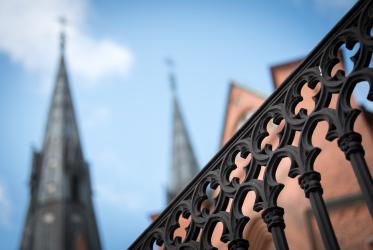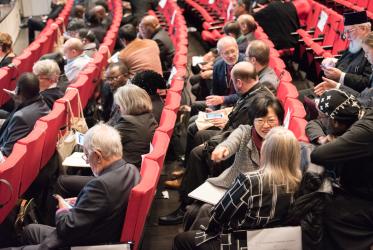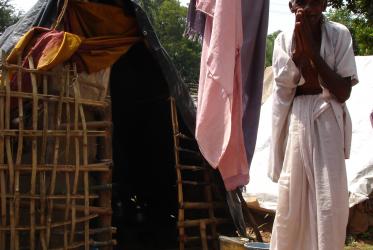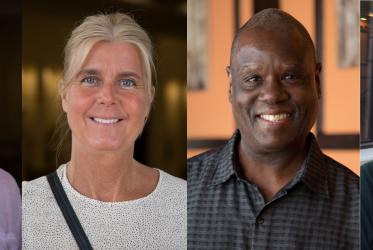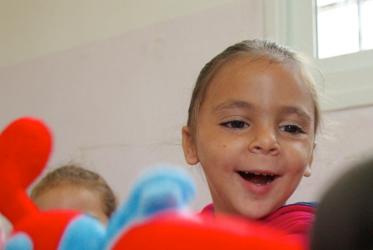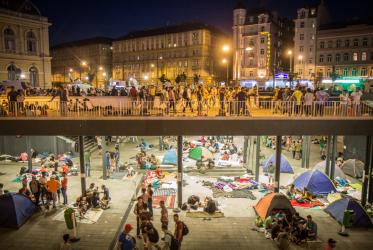Displaying 21 - 40 of 43
04 November 2018
WCC moderator, general secretary address Executive Committee
02 November 2018
Bishop Mary Ann Swenson: “We are called to serve”
02 November 2018
WCC, ACT reflect on ecumenical diakonia in historic meeting
01 November 2018
WCC Executive Committee convenes in Uppsala, Sweden
01 November 2018
WCC greets new leadership of ACT Alliance
31 October 2018
Looking back and ahead
31 October 2018
Tveit to ACT Assembly: with hope, churches can act together
29 October 2018
Broken glass of hope grown out of rubble
16 July 2018
#WCC70: Remembering Orissa
11 January 2018
Peace consultations of hope
07 July 2017
Pilgrimage and youth
28 June 2016
Hundreds of pilgrims making way to UN Climate Change Conference
27 October 2015
European churches encouraged to work together to address refugee crisis
10 September 2015
WCC urges responsibility for and support to the refugees in Europe
04 September 2015
WCC launches global ecumenical network for advocacy for just peace
09 December 2014
WCC advisory group to promote gender justice
05 December 2014
Christians are called to be peacemakers and to build just peace
02 December 2014
